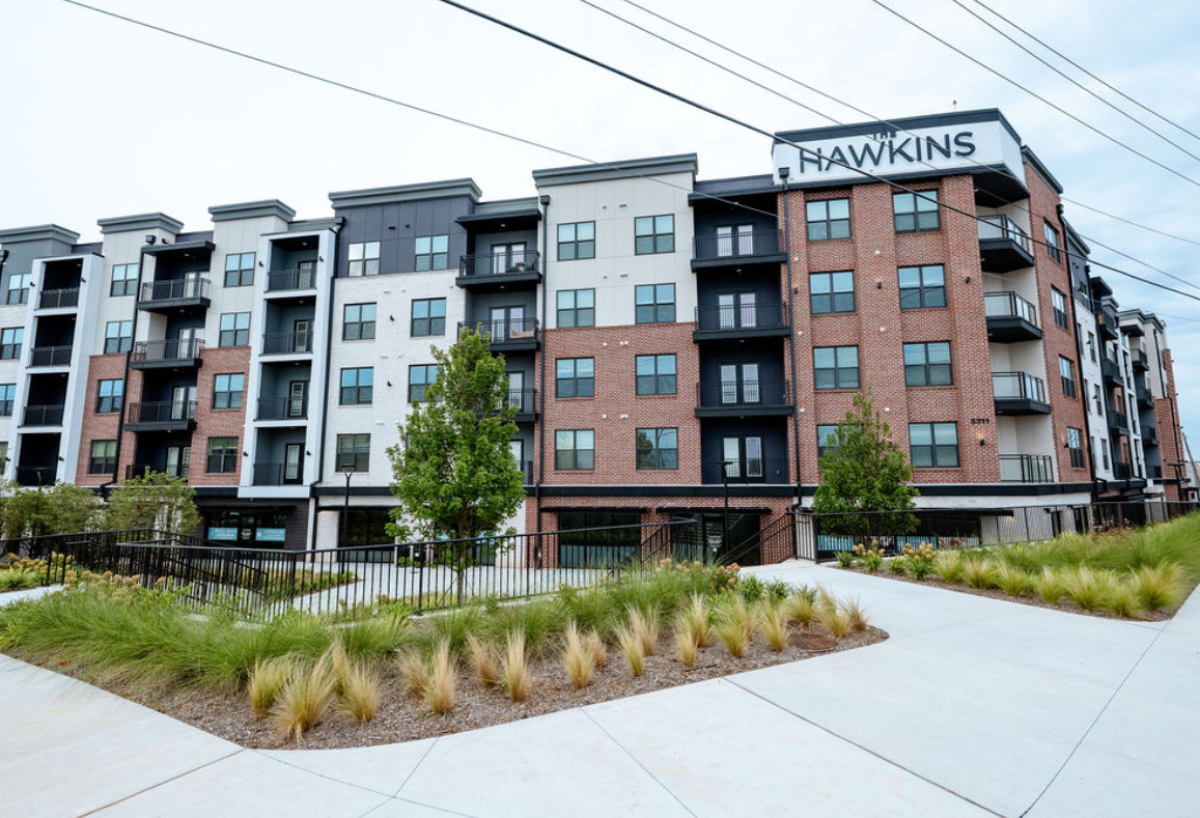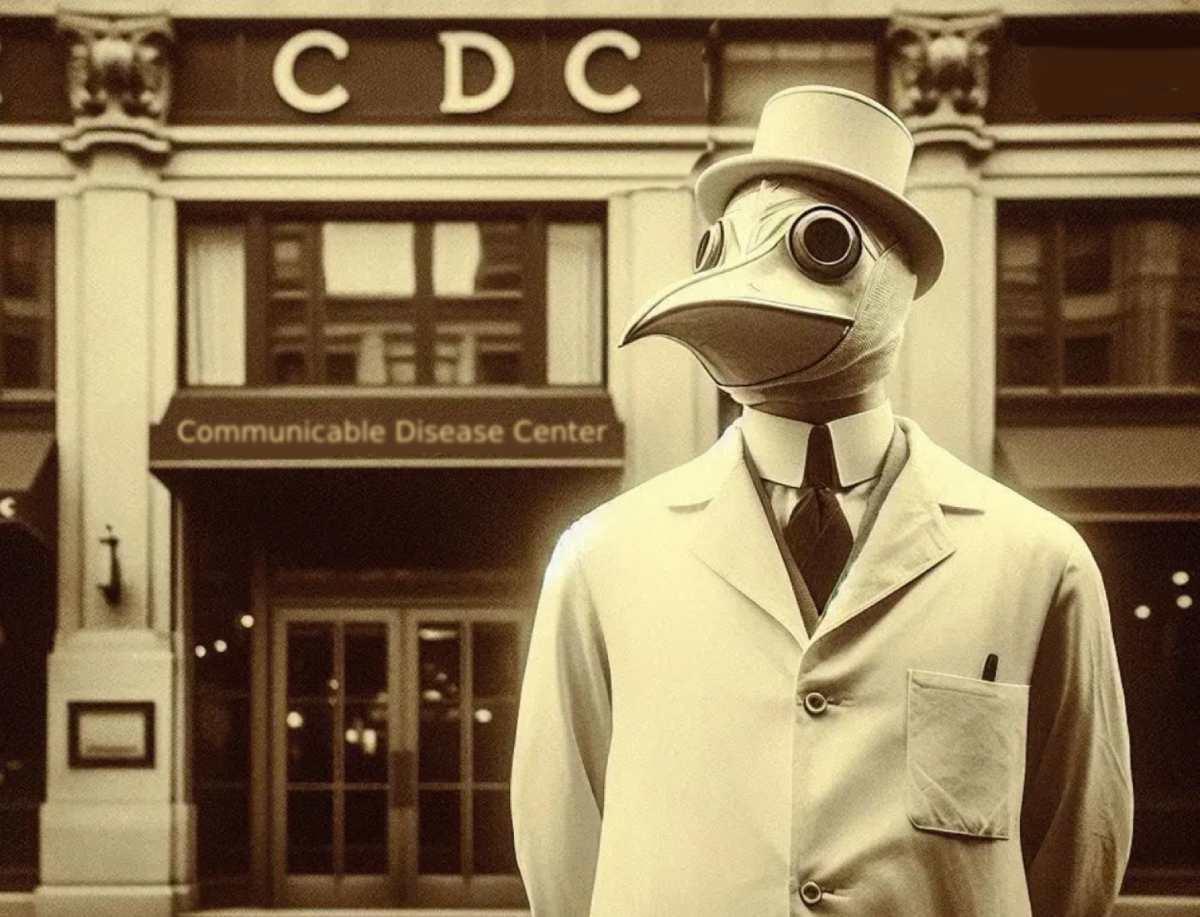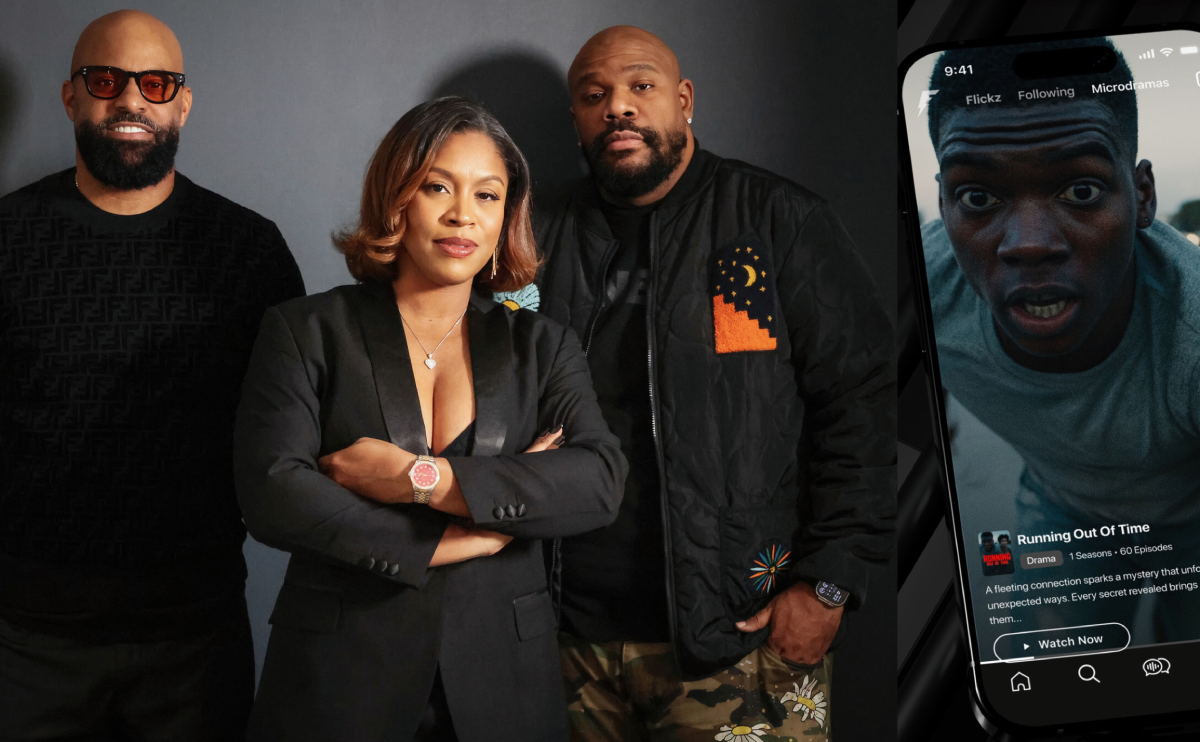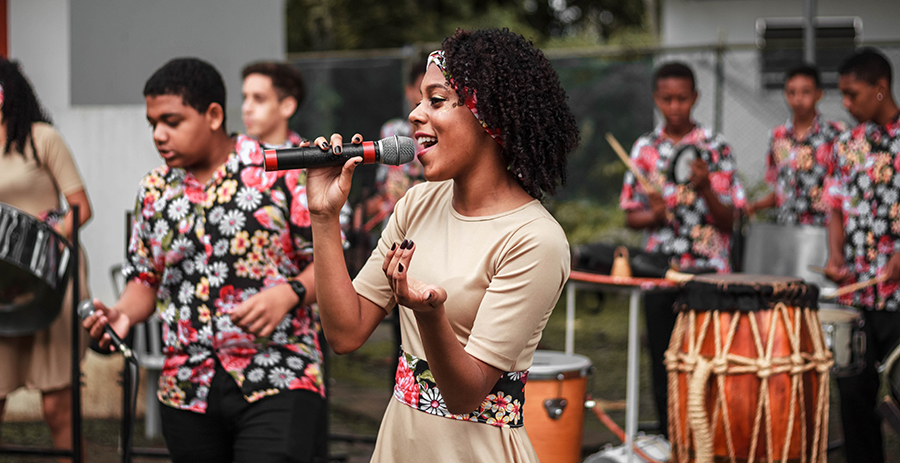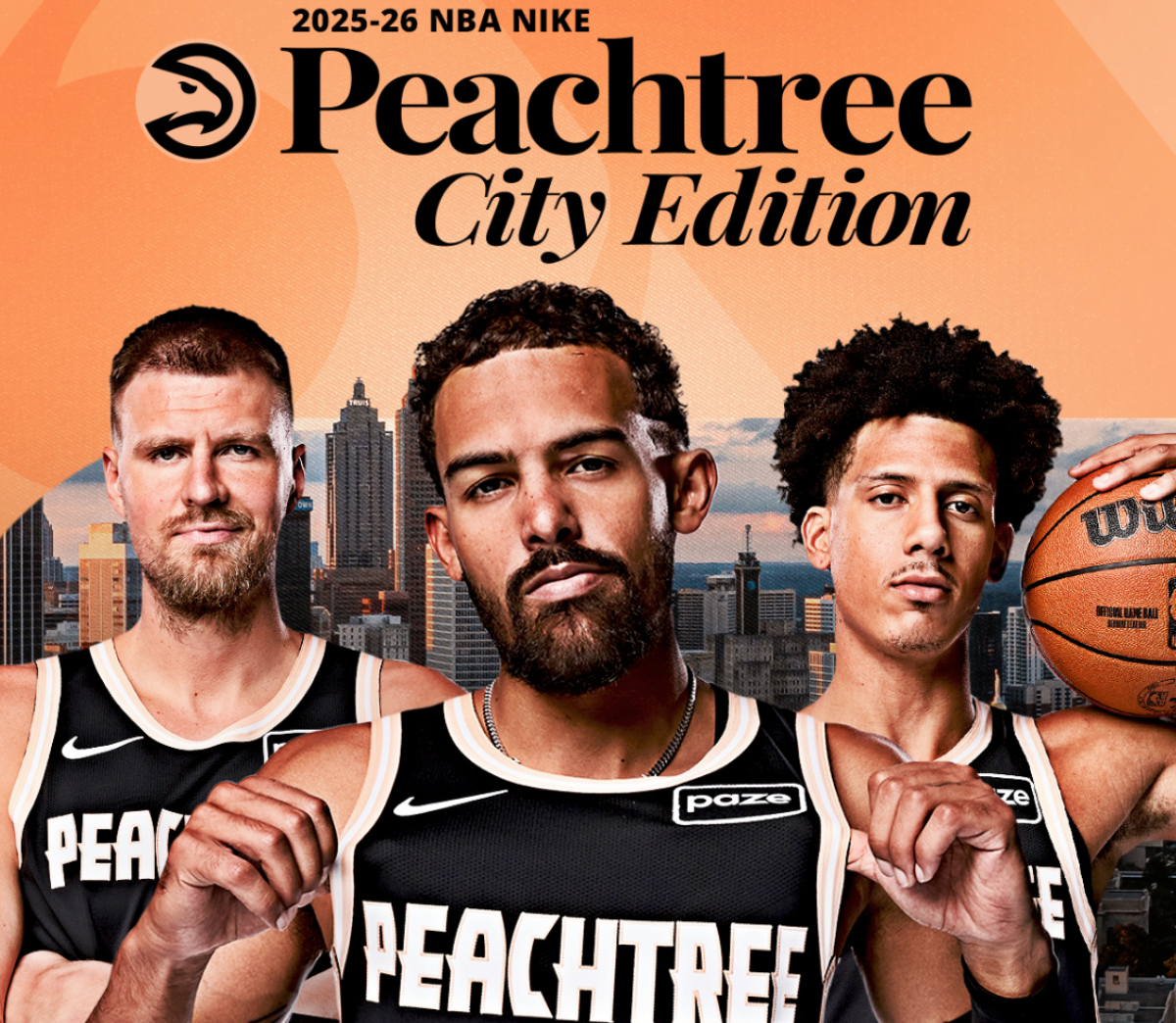-
Chamblee, GA – The Hawkins, a sleek 192-unit luxury apartment community, recently opened in Chamblee. The units are already turning heads—and runways—as a hot spot for renters in metro Atlanta’s fast-growing suburbs.
Just five months after kicking off leasing, the development has hit an impressive 63% occupancy rate, with projections to reach full capacity by the end of the first quarter of 2026, according to Atlas Real Estate Partners.
Grand Opening Celebrates The Hawkins Apartments
The rapid uptake underscores the surging appetite for premium, transit-friendly housing in Chamblee, where proximity to bustling hubs like Buckhead, Brookhaven, and Downtown Atlanta makes daily commutes a breeze.
What sets The Hawkins apart? Its prime perch right next to DeKalb-Peachtree Airport (PDK), delivering jaw-dropping, unobstructed vistas of private jets and the glittering Atlanta skyline.
“We designed The Hawkins to stand out not only in Chamblee, but across Atlanta,” said Alex Foster, Managing Partner at Atlas Real Estate Partners. “Blending irreplaceable offerings like the sky lounge overlooking PDK to its practical amenities such as our dog walk and pet spa, coworking spaces and intimate courtyard, every detail reflects our goal of creating a community where residents can live, work, and connect in one of Atlanta’s most exciting neighborhoods.”
The residences themselves cater to a range of lifestyles, blending studios, one-, two-, and three-bedroom layouts with upscale touches: think expansive open floor plans, high-end finishes, and smart, contemporary conveniences that scream modern comfort.
But it’s the shared spaces that elevate the experience.
The crown jewel is the sky lounge—a showstopper with floor-to-ceiling glass walls framing those panoramic airport and city views, perfect for sunset cocktails or remote work sessions with a view.
For the wellness crowd, there’s a cutting-edge indoor/outdoor fitness center and a resort-style pool to beat the Georgia heat.
Pet owners will appreciate the dedicated dog spa and walking areas, while remote professionals can plug into flexible, high-design coworking zones.
Adding to the everyday ease: Plans for ground-floor retail and a grab-and-go market mean coffee runs and quick bites are just steps away.
All of this sits minutes from Chamblee’s top-tier dining, shopping, and entertainment scenes, with easy access via multiple transit lines.
This isn’t Atlas’s first rodeo in the Peach State. The New York- and Miami-based firm, founded in 2010, has scooped up over 9,000 multifamily units and built nearly 1,000 more, honing a reputation for value-add developments that prioritize creativity and top-notch operations.
The Hawkins fits neatly into their Opportunity Zone strategy, aiming to revitalize and energize underserved areas.
Joining Atlas on this venture is a powerhouse lineup: FIDES Development as co-developer, New South Construction handling the build, Nelson Architects on design, Banko Design for interiors, and Greystar Property Management to keep things running smoothly.
As Atlanta’s real estate market continues to evolve, projects like The Hawkins signal a shift toward communities that don’t just house residents—they inspire them. Ready to soar? Prospective tenants can dive into details and schedule a tour at thehawkinsatl.com.
AtlantaFi.com is your go-to source for the latest on homes, developments, and market trends across the ATL and beyond.
tlanta has one of the best real estate markets in the country, with affordable housing in every quadrant of the city. Large backyards, manicured parcels and strong neighborhoods with ample dining amenities make it one of the top places for transplants.
Not to mention that the city’s dining scene is the best in the Southeast. Looking for a home? Check out our Real Estate Resource Page.
Keep up with what’s going on in Atlanta’s real estate scene here with our Apartment Guide.
See The Latest Atlanta Real Estate News At AtlantaFi.com.
More Articles From AtlantaFi:
-
In a year where Southern hospitality meets global gastronomy, Atlanta’s dining scene is once again proving it’s a force to be reckoned with.
OpenTable, the go-to platform for restaurant reservations, unveiled its annual Top 100 Restaurants in America list for 2025, and the Peach State punched above its weight with not one, but three Atlanta establishments earning well-deserved nods.
America’s Best Restaurants, According To OpenTable
Amid a coast-to-coast lineup of 100 elite spots – from California powerhouses to New York staples – our city’s steakhouses, Italian havens, and sushi sanctuaries stand tall, showcasing the diverse flavors that make Atlanta a true foodie destination.
The list, drawn from a staggering 10 million verified diner reviews collected between September 1, 2024, and August 31, 2025, isn’t just about star power; it’s a data-driven celebration of excellence.
OpenTable crunched metrics like average ratings, the percentage of five-star reviews, reservation demand (including advance bookings and capacity fill rates), and even direct searches to score contenders.
Only those hitting a minimum review threshold made the cut, resulting in an alphabetical-by-state roster (no numerical rankings here – every entry is a winner). With Atlanta’s trio all boasting perfect 4.9-star ratings on the platform, it’s clear our locals are delivering unforgettable nights out.
Buckhead’s timeless elegance dominates the Georgia contingent, but West Midtown sneaks in with a modern twist.
Here’s the lowdown on Atlanta’s honorees, each a pillar of our vibrant culinary landscape:
Bones: The Steakhouse Standard-Bearer

Perched in the heart of Buckhead at 3130 Piedmont Rd NE, Bones has been Atlanta’s go-to for power lunches and celebratory suppers since 1979.
This isn’t just a steakhouse; it’s an institution where prime aged beef meets fresh Maine lobster and Southern-rooted specialties like sautéed mushrooms atop a petite New York strip.
Diners rave about the “best steak in town” and “exceptional service,” with one OpenTable reviewer calling it their “favorite restaurant in Atlanta for 40 years.”
What sets Bones apart? An award-winning wine cellar boasting over 1,350 labels – browsable via iPad for that tech-savvy touch – and a cozy, club-like vibe perfect for sealing deals or toasting milestones. Zagat has crowned it America’s top steakhouse for food and service, and with 630 glowing reviews on OpenTable, it’s no wonder.
Pro tip: Pair your dry-aged ribeye with a classic martini; they shake ’em like no one else in the ATL.
La Grotta: Italian Heritage in a Hidden Gem

Tucked away in the speakeasy-style basement of a Buckhead condo at 2637 Peachtree Rd NE, La Grotta feels like a secret shared among Atlanta’s elite since its 1978 debut.
Overlooking a lush courtyard garden, this Northern Italian treasure specializes in handmade pastas, seared calamari, and veal dishes that whisper “nonna’s kitchen” with upscale flair.
“Still the best restaurant in Atlanta,” declares a loyal patron, while another praises the “impeccable” fall patio under heat lamps.
Voted Atlanta Magazine’s Best Italian for 18 straight years and a 25-time AAA Four Diamond winner, La Grotta embodies timeless class – think vitello tonnato appetizers and goat cheese-stuffed ravioli mains.
Chef Daniel Chance, at the helm since 2021, sources fresh, local ingredients for hearty, rustic plates that pair beautifully with the full bar’s cocktails.
It’s the spot for rehearsal dinners or corporate escapes, seating up to 110 in private bliss. Dress to impress; this is where trends fade, but classics endure.
Mujō: Sushi Elevated with Southern Soul

For a sleek departure from Buckhead’s classics, head to West Midtown’s Mujō at 691 14th St NW, where Michelin-starred omakase meets moody, intimate vibes.
This 15-seat cypress-counter haven, led by Kentucky-raised Chef J. Trent Harris (a veteran of Tokyo and NYC sushi temples), delivers Edomae-style nigiri feasts that evolve nightly with seasonal fish flown in from Japan.
“Phenomenal service” and “impeccable food” dominate the 119 OpenTable reviews, with guests swooning over wagyu bites and chawanmushi custards.
Opened in 2022 after a pandemic pop-up stint, Mujō infuses Japanese precision with Atlanta flair – think hip-hop on the playlist and bespoke cocktails in the dimly lit bar. It’s a “luxury seafood dreamland” where small plates precede a nigiri progression, all in a space that activates every sense
Esquire named it one of America’s Best New Restaurants in 2023, and its Michelin nod cements the hype. Reservations? Book months ahead; this is ichi-go ichi-e – one chance, one meeting – at its finest.
Atlanta’s representation on this national stage underscores our city’s evolution from Southern comfort to world-class innovation.
With heavy hitters from Chicago (15 spots!) and California (16) leading the pack, Georgia’s trio – all within a short drive of downtown – highlights how we’re blending heritage with high-end without missing a beat.
Final Word
As Debby Soo, OpenTable’s Chief Product and Technology Officer, noted in the announcement, these honorees “exemplify the incredible dining experiences available across the country.”
Whether you’re craving a dry-aged cut at Bones, al dente perfection at La Grotta, or nigiri nirvana at Mujō, make your move – tables fill faster than a Falcons comeback. Atlanta’s food scene isn’t just cooking; it’s commanding the conversation. What’s your next reservation? Drop us a line in the comments.
Even if 100 restaurants don’t fit your fancy, you can also come and grub at one of the best places to eat on the southside. The street’s walkable, trendy vibe, enhanced by vibrant murals and restored brick storefronts, draws food enthusiasts and supports a burgeoning dining scene.
More Food Coverage:
Here Are The Best New Restaurants In Atlanta
-
The Centers for Disease Control and Prevention (CDC) headquarters and operations in Atlanta, Georgia have been like a real-life X Files more times than not. So, what do you know about the agency?
In this article, we’ll explore some amazing, amusing or just plain wild facts about the Centers for Disease Control and Prevention, headquartered right here in the largest city in the Peach State:
1. It Began As the Communicable Disease Center
The CDC started in 1946 as the “Communicable Disease Center” with one mission: kill malaria-carrying mosquitoes in the war-surplus army buildings on Clifton Road.
Its first employees were mostly entomologists and engineers, not doctors. The agency’s founder was Dr. Joseph Mountin, a career U.S. Public Health Service (USPHS) officer who would eventually become assistant surgeon general.
His descendants donated Mountin’s microscope to the CDC in 2012.

The agency’s original budget was $10 million and it literally began as a malaria-spraying operation run out of a tiny office in downtown Atlanta (the old U.S. Public Health Service building on 15th Street).
2. The CDC Owns the World’s Deadliest Pathogens

The CDC owns one of the world’s largest collections of deadly pathogens — including live smallpox virus. Only one other place on Earth (Vector in Russia) is allowed to keep it.
The samples are stored in a ultra-secure freezer in Building 18 on the Roybal Campus, guarded 24/7 by armed officers who carry fully automatic weapons.
3. The CDC Once Employed a Full-time ‘Vomitologist’
Dr. Michael Beach (the former deputy director of the Division of Foodborne, Waterborne and Environmental Diseases) spent decades studying how norovirus and other bugs spread on cruise ships and in swimming pools. He proudly called himself the agency’s official expert on projectile vomiting patterns.
Most recently, Beach was seen protesting Trump Administration cuts to the agency.
“To cut the scientific staff to the bone, to close laboratories, to cut off all of the data coming in about maternal health, about violence, about environmental health, about prevention of HIV and STDs and TB — those sorts of things are going to have a huge impact on the health of this country,” he told NPR.
4. There’s a CDC Museum With All Types of Curiosities

The CDC Museum (officially the David J. Sencer CDC Museum) has an original iron lung, a real Guinea worm extraction pipe used in Africa, and — weirdest of all — a life-size replica of a 1918 influenza ward. It also displays the actual freezer tray that held the world’s last naturally occurring smallpox case (Ali Maow Maalin, Somalia, 1977).
5. The CDC Solved the Legionnaires Outbreak in Philly

Many don’t realize it but Legionnaires’ disease was named after a mysterious outbreak in Philadelphia that sickened hundreds of American Legion veterans in the summer of 1976.
During the outbreak in Philadelphia, CDC scientists solved the mystery by growing the previously unknown bacterium in fertilized chicken eggs — the same method used to make flu vaccine — inside a makeshift lab set up in a hotel basement.
6. The CDC Stopped a Flu Pandemic Way Back in 1957

Photo credit: Walter Sander/CDC
On April 17, 1957, Dr. Maurice Hilleman, a virologist at the Walter Reed Army Institute of Research, spotted the first clear warning of an impending pandemic. That morning, a short item in The New York Times described a severe influenza outbreak sweeping Hong Kong. One sentence stood out: Clinics were so overwhelmed that “women carried glassy-eyed children tied to their backs” while waiting in line.
Recognizing the telltale signs of a new, highly transmissible strain, Hilleman immediately sounded the alarm among public-health officials and began urgent work on a vaccine, aiming to have it ready before American schools reopened in September.
The virus had actually emerged two months earlier, in February 1957, in a remote area of Guizhou Province in southwestern China. By mid-April, when Hilleman read the report, the outbreak had exploded in Hong Kong: roughly 250,000 people—about 10 percent of the city’s population—were already seeking treatment.
Hilleman alerted U.S. officials to speed production of a vaccine using fertilized chicken eggs, which was the standard method at the time and is still widely used today.
By September 1957, around 40 million doses were available in the United States, produced by several pharmaceutical manufacturers across the country. This swift action is credited with saving an estimated 1 million additional lives in the U.S. and is considered the only time a flu pandemic was successfully “averted” with a vaccine.
7. The CDC Almost Caused an Anthrax Incident, but Averted Disaster

In June 2014, up to 75 CDC scientists in Atlanta were potentially exposed to live anthrax, according to news reports. This happened because a high-security lab transferred samples to lower-security labs that were not cleared to handle the live, un-inactivated pathogen due to a safety lapse in following procedures to kill the bacteria.
Although nobody died, it was determined that procedures to kill the bacteria before they were transferred were not followed. The incident prompted an internal review and the closure of some CDC anthrax and flu labs.
The CDC monitored the employees and provided them with antibiotics as a precaution.
8. The CDC’s Scary Blogs Can Cause Panic

Every year on Halloween, the CDC typically releases a fun blog post written as if zombies actually attacked. The most famous one (“Preparedness 101: Zombie Apocalypse,” 2011) was originally a joke blog post by Rear Adm. Ali Khan… and it crashed the CDC servers from traffic.
It remains the most popular public-health blog post in history and is still used to this day used to teach emergency preparedness.
Final Word
Bonus Atlanta-specific weirdness: If you walk the path behind the CDC campus at dusk, you’ll occasionally run into employees in full biosafety Level-4 suits taking out the (triple-bagged, autoclaved) trash. Nothing makes you feel quite like you’re living in a sci-fi movie set like that sight on a quiet Emory-adjacent evening.
Check Out Our Atlanta Travel Guide
-
Development4 Min Read
In a move that’s set to shake up the local entertainment scene, Atlanta-based social media powerhouse Fanbase is teaming up with powerhouse producer Ty Walker and executive producer Keisha Perry Walker to roll out a fresh slate of microdramas starting next year.
The collaboration, announced today, spotlights the city’s growing clout in digital storytelling, bringing high-stakes, emotion-packed shorts straight to fans’ phones.
Fanbase, the innovative platform founded by Atlanta native Isaac Hayes III — son of the legendary soul icon Isaac Hayes — is no stranger to empowering creators.
Now, it’s diving headfirst into the booming world of microdramas: ultra-short, scripted series crafted for on-the-go viewing, think gripping tales that hook you in under 10 minutes.
Launching exclusively on the app in Q1 2026, these series will champion diverse voices and multicultural narratives, creating a pipeline for indie filmmakers and production outfits to shine.
At the helm is Ty Walker, the veteran producer behind hits like Imperium and Kevin Hart’s Die Hart franchise, leading the charge through his Braveheart Entertainment banner. Joining him is Keisha Perry Walker of Wild Peach Studios, a key executive producer whose expertise in nurturing bold, inclusive content aligns perfectly with Fanbase’s mission.
Together with Hayes, they’re not just producing — they’re building an ecosystem that could put more Atlantans back to work amid Hollywood’s ongoing challenges, from strikes to streaming shifts.
“This partnership with Fanbase lets us introduce a new kind of storytelling that delivers maximum emotion in minimal time,” Walker said in a statement. “We’re excited to push creative boundaries and spotlight compelling voices in this evolving space.”
Hayes echoed the enthusiasm, highlighting how Fanbase’s built-in tools for short-form video, creator subscriptions, and app development make it the ideal launchpad. “The microdrama genre is scaling fast, and Fanbase is the perfect home,” he added. “
Development is already underway inside the app, and we are excited to partner with Ty and Keisha at Braveheart and Wild Peach.”
As microdramas explode globally — captivating audiences from Seoul to São Paulo — this Atlanta-rooted venture positions the Peach State as a frontrunner in the U.S. market.
It’s a win for local talent, too, offering fresh gigs for actors, writers, directors, and crew in a format that’s as accessible as it is addictive.
For more on Fanbase and upcoming series, download the app or visit fanbase.app. Stay tuned to Atlanta Daily Buzz for updates on how this homegrown project unfolds.
Final Word
The vast majority of dramas filmed in Atlanta, won’t be done on an app. Georgia has been a favorite location for TV productions since the state instituted generous tax breaks for film companies that agree to shoot locally. Projects from CBS, NBC, HBO, BET and more are slated to shoot in the latter part of the year and the foreseeable future.
Because of the steady flow of movie and TV productions, Atlanta has been called the Hollywood of the South and it’s not just a label.. If you want to be an actor, the city has classes you can take as well as places that provide headshots and more. You can also audition at numerous casting calls to build your movie and TV reel.
Coming 2 America is just one of many films filmed in Atlanta. See our Movies Page for more.
Are you interested in becoming an actorin Atlanta? You’re in the right place!
With more than 900 movie and TV projects just in the last few years, the film industry has generated more than $9 billion for the state of Georgia.
There are so many movies filmed in Atlanta these days that it’s hard to keep up with it all. That’s why I suggest you subscribe to AtlantaFi.com to get all the freshest movie casting calls, celeb sightings and Atlanta happenings delivered to your inbox.
See Atlanta Casting Calls And Auditions Available Right Now
Want to work in Georgia film & TV? Here are the latest Atlanta casting calls
Read More From AtlantaFi.com:
-
Cooler weather is coming this week as Georgia’s fall foliage materialize on the trees, bushes and other plants.
Do you want to know where to go to see the best of the fall colors? This article will show you where to go!
There’s also quite a bit of fall fun to be had. Autumn is a beautiful time in Georgia, from pumpkin patches to apple-picking outings and more.
These Awesome Georgia Fall Photos Show Autumn Is Here
To celebrate autumn in Georgia, we’d like to show you some of the best fall colors and scenery around Georgia right about now.
1. Lake Herrick – Athens, GA

Lake Herrick sits in Oconee Forest Park, one of the most beautiful recreational areas in Georgia. Along with taking in the beautiful sights, you can also engage in walking, trail running, birdwatching, and fishing.
2. Glenwood Park, Atlanta

Nestled on Atlanta’s eastside, Glenwood Park offers Atlantans tree-lined streets and a lively oasis right there in the city. Beautiful trees dot the landscape, afforded the patient viewer ample opportunity to see some beautiful leaves.
3. Chattahoochee National Forest — North Georgia

The Chattahoochee National Forest encompasses more than 750,000 acres of mountainous forest land in the northern tip of the state. There’s plenty of bucolic places to watch nature do its thing, including around the Conasauga and Etowah rivers.
4. Amicalola Falls State Park – Dawson County, Georgia

Amicalola Falls State Park is spread across 829 acres between Ellijay and Dahlonega in Dawsonville. The place gets its name the term in the Cherokee language that means “tumbling waters.” The park is renown for its 729-foot waterfall, which is Georgia’s highest.
5. Emory University – Brookhaven, Georgia

City folks unaccustomed to rural life will be able to find some beautiful natural scenes much closer to Atlanta. The grounds of Brookhaven’s Emory University is a must-visit for fall lovers everywhere.
6. Providence Canyon State Park – Lumpkin, Georgia

The natural beauty of Providence Canyon, which many refer to as Georgia’s “Little Grand Canyon,” holds its own when it comes to brilliant fall colors. This Lumpkin County paradise is one of the “Seven Natural Wonders of Georgia.”
7. Atlanta, Georgia

Back to the city we go! Atlanta may not have tall mountains or really steep hills, but the places is practically an urban forest, and that makes there are plenty of places to see the fall colors of the trees, including in the city’s best parks.
The Georgia fall will have more beautiful scenes to see as the autumn progresses. Why not find outdoorsy things to do to join in on the fun?
The fall weather also means it’s time to dress the part. You don’t want to be caught outside with Daisy Dukes on in this weather.
Up next: Fall Sweater Weather Options
When Does Fall Start In Georgia?
Fall may officially start after September 22, but in Georgia, the weather and temperatures have a mind of their own. It has gotten cooler since, but in mid-November is when you’ll really feel it.
While Atlanta benefits from a sub-tropical climate, the farther you travel up I-85 and I-75, the cooler it gets. This is partially because of the higher elevations as you get into the foothills of the Smokey Mountains.
The weather for Georgia as a whole is dependent on how close you live to the coast or the interior bordering Tennessee, South Carolina, Alabama and Florida.
Where is Georgia’s Fall Line?
Georgia’s fall line refers to subterranean shoreline under the ocean. Georgia’s fall line stretches 20 miles and divides the state’s Coastal Plain from its Piedmont region.
If you want to know where Georgia’s higher elevation begins, it’s in the Piedmont. This is where rivers, streams and other bodies of water have the fastest currents, which cause the water to “fall.”
Looking for some autumn fun in Georgia? Don’t miss these fall festivals. Also, don’t forget to keep up with the fall foliage map.
There are so many Atlanta events popping off every week it’s hard to keep up with it all. That’s why I suggest you subscribe to AtlantaFi.com to get all the freshest gatherings, Atlanta happenings, parties and more delivered to your inbox.
Here are more articles from AtlantaFi.com:
-
In a bombshell revelation that’s rippling through the Peach State’s entertainment circles, Real Housewives of Atlanta alum Kandi Burruss has confirmed her split from longtime husband Todd Tucker after 11 years of marriage.
The announcement, shared exclusively with People magazine on Friday afternoon, marks the end of one of Bravo’s most enduring on-screen romances, leaving fans and locals alike reeling from the unexpected turn.
“After deep thought and a lot of prayer, I’ve made the decision to move forward with a divorce,” Burruss, 49, stated in her emotional message. “I’m stepping into a new chapter, pouring into my work, my family, and my own growth. I’m grateful to everyone who supported us throughout the years, and I ask for privacy, grace, and understanding as we navigate this transition with our family.”
A Marriage Made For and From TV
The couple, whose whirlwind romance began on the set of RHOA during Season 4 in 2011, tied the knot in a lavish April 2014 ceremony that captivated viewers nationwide.
Tucker, 52, a behind-the-scenes producer on the show during their Africa trip filming, proposed just two years later in January 2013. What started as a TV spark evolved into a blended family powerhouse: Burruss brought daughter Riley, now 23, from a previous relationship, while Tucker had Kaela, 29.
Together, they welcomed son Ace in 2016 and daughter Blaze in 2019, building a life in Atlanta that’s been as much a part of the city’s cultural fabric as Burruss’s hit sex toy empire, Bedroom Kandi, and her Broadway productions.
For Atlantans who’ve followed the Burruss-Tucker saga, this feels personal. Their home in the upscale Country Club of the South neighborhood has hosted countless RHOA moments, from explosive reunions to family game nights at their sprawling estate.
The Tuckers: Entertainment Brokers With Businesses and Fame
Burruss’s ventures, including her Old Lady Gang soul food restaurants in East Atlanta Village and Southwest Atlanta, have become local staples, drawing crowds eager for a glimpse of the Grammy-nominated singer-turned-entrepreneur.
Tucker’s steady presence—often the camera counterpoint to Burruss’s fiery energy—earned him a fanbase of his own, with many crediting him for helping her navigate the highs and lows of reality TV fame.
The split, described by sources close to the couple as “amicable with legitimately no drama,” reportedly stems from the pair growing apart over recent months.
They’ve been separated for a few months, with Burruss recently basing herself in New York City for work while Tucker holds down the fort in Atlanta with the kids.
Fans first caught wind of trouble through subtle clues: Burruss ditching her wedding ring at public appearances and quietly dropping “Tucker” from her Instagram bio.
Whispers intensified last week at BravoCon 2025 in Las Vegas, where Tucker was notably absent as Burruss accepted the Wifetime Achievement Award.
In her speech, she gave a poignant shoutout: “To Todd, thank you for surviving the blogs, the shade, the rumors, the lies, the truth, the almost fights, the actual fights, the reunions… You earned this award too.”
Just days later, the fairy tale fractured.
As details emerge, questions swirl around the practicalities. With two young children in the mix, custody arrangements could prove tricky, though insiders emphasize the co-parenting remains a priority.
Whether a prenup is in play remains under wraps, but the couple’s shared business interests—from joint investments to Tucker’s production credits on Burruss’s projects—suggest negotiations ahead. For now, both vow to keep communication open, speaking daily and prioritizing the kids.
Atlanta’s Bravo faithful are already flooding social media with heartbreak emojis and support. “Kandi built an empire here, and Todd was right by her side through every twist,” tweeted one local fan from Buckhead. “Wishing them peace—y’all changed the game for Black love on TV.”
Others speculate on RHOA’s upcoming Season 16 reboot, sans Burruss, who stepped away last year but remains a fixture in the franchise’s lore.
Burruss’s post-divorce pivot sounds laser-focused: more music, more theater (she’s fresh off Tony-nominated producing for The Piano Lesson), and expanding her Atlanta-rooted brands. Tucker, ever the family man, is expected to stay put in the ATL, perhaps diving deeper into production or quiet philanthropy.
Final Word
As the city that birthed their story braces for the next chapter, one thing’s clear: Kandi Burruss doesn’t do quiet exits.
From RHOA drama to bedroom boardrooms, she’s Atlanta’s unapologetic queen—and whatever comes next, we’ll be watching. Our thoughts are with the family during this difficult time.
-
Kenya Williams, 26, has been looking for an affordable home in Atlanta for eight months now. “Still nothing,” the IT professional says, adding that her preference is Midtown or somewhere on the eastside near Old Fourth Ward. “I’ve thought about getting a roommate at this point.”
Maybe she should get a little older.
According to the National Association of Realtors’ (NAR) 2025 Profile of Home Buyers and Sellers (covering transactions from July 2024 to June 2025), the median age of all home buyers—first-time and repeat combined—reached an all-time high of 59 years old.
Nationwide, 59 Is Median Homebuying Age
This is up from 56 in 2024, 49 in 2023, and a far cry from the 31 recorded in 1981 when NAR began tracking the data.
For context:
- First-time buyers’ median age hit a record 40 (up from 38 in 2024).
- Repeat buyers’ median age rose to 62 (up from 61 in 2024).
This aging trend reflects broader housing market challenges, including high prices, elevated mortgage rates, and low inventory, which have sidelined younger buyers and boosted the share of older, cash-flush repeat buyers (now 79% of the market).
The first-time buyer share also fell to a historic low of 21%. These figures are based on NAR’s survey of over 173,000 recent buyers, weighted for geographic representation.
Median Homebuying Age in Atlanta
Drawing from the latest data released by the National Association of Realtors (NAR) and local analyses, the median age of homebuyers in the Atlanta metro area has reached an estimated 56 years old in 2025—mirroring a national surge to 59 but underscoring unique local pressures like soaring prices and limited inventory.
This trend, fueled by high mortgage rates and economic barriers for younger residents, is reshaping the Peach State’s real estate landscape and raising alarms about the American Dream slipping further out of reach for millennials and Gen Z.
A National Crisis Hits Home in Atlanta
The NAR’s 2025 Profile of Home Buyers and Sellers, based on surveys of over 173,000 recent buyers nationwide, paints a stark picture: the overall median buyer age hit a record 59, up from 56 in 2024, while first-time buyers—now just 21% of the market—skew even older at a median of 40.
Repeat buyers, who dominate at 79% of purchases, clock in at 62 on average.
”We’re seeing a market dominated by equity-rich boomers and Gen Xers trading up or downsizing, while younger buyers sit on the sidelines,” said Jessica Lautz, NAR’s deputy chief economist.
High interest rates, lingering around 6.7% for a 30-year fixed mortgage, have locked many into their current homes, exacerbating the inventory shortage.
Zillow data shows that in metro Atlanta, aspiring owners must sock away about 10% of median household income monthly to hit that 10% down payment threshold, a far cry from the late-20s entry point common in the 1980s.
Can you afford a home in Atlanta? Read this.
Local Factors Amplifying the Age Gap
Atlanta’s market, while more affordable than coastal hotspots like New York or San Francisco, is no stranger to these pressures. The metro area’s population swelled to 6.4 million in 2024, driven by in-migration and job growth in sectors like tech and logistics, yet housing supply lags.
Racial and generational disparities add layers to the story.
Spurred by gentrification and inflation, Black homeownership rates in Georgia trail the national average, with affordability challenges hitting minority buyers hardest—despite a median first-time buyer age of 35 for some groups entering the market.
Meanwhile, older buyers, often cash-flush from equity gains, snap up 30% of properties all-cash nationwide, a trend echoed locally where 37.6% of April sales were cash deals earlier this year.
In Atlanta’s diverse suburbs like Fulton County, where prices averaged $426,727, this cash wave favors repeat buyers over novices.
Glimmers of Hope and Calls for Action
Not all signs are grim. Forecasts from NAR’s chief economist Lawrence Yun predict a 6% uptick in existing home sales nationally in 2025, with Atlanta poised for a 9-13.5% local rebound as inventory balances and rates potentially ease.
The Atlanta Regional Commission anticipates 1.8 million new residents by 2050, spurring investments in mixed-income developments and infrastructure to boost affordability.
Final Word
Atlanta has one of the best real estate markets in the country, with affordable housing in every quadrant of the city. Large backyards, manicured parcels and strong neighborhoods with ample dining amenities make it one of the top places for transplants.
Not to mention that the city’s dining scene is the best in the Southeast. Looking for a home? Check out our Real Estate Resource Page.
Keep up with what’s going on in Atlanta’s real estate scene here with our Apartment Guide.
See The Latest Atlanta Real Estate News At AtlantaFi.com.
More Articles From AtlantaFi:
-
If Atlanta, the nightlife includes dancing, eating — and some potent poetry. – If you’ve never stepped into a dimly lit room where the air crackles with anticipation right before a poet grabs the mic, you haven’t truly experienced Atlanta after dark.
If you’re looking for an open mic to hear some local talent, or you want to try out some new poetry, Atlanta has plenty of places to go.
Open Mics & More: Best Spoken Word Venues In Atlanta
Let’s look at some of the best places for spoken word events.
Apache Cafe
880 Woodrow St SW, Atlanta, GA 30310 | (404) 594-1170

If you want to enjoy one of the city’s musical gems, Apache Cafe is the place to go. Aside from being the venue where India Irie was discovered, patrons will enjoy the daily happy hour, food and drinks.
Red Light Cafe
553-1 Amsterdam Ave NE, Atlanta, GA 30306 | (404) 874-7828

Red Light Cafe in Midtown Atlanta is your place to go to see local rock acts, reggae and other alternative vibes. Check out the Red Light Cafe events calendar.
Kat’s Cafe

If you’re looking for a lively night of creative arts, Kate’s Cafe in Midtown Atlanta may be just the thing. Neatly tucked away amid some residential homes at 970 Piedmont Ave NE, a short distance from 10th Street, Kat’s Cafe live music bar and restaurant is definitely one of those cool things to do in Atlanta on any day of the week.
With a weekly schedule of events that features Pangea’s Afrosocial, spoken word, karaoke, art, live music and more, this place is a must-visit. See upcoming events.
Urban Grind
962 Marietta St NW, Atlanta, GA 30318 | (404) 724-0605

Here’s what one reviewer says about Urban Grind: “Even though I have lived in Atlanta for 3 years I am just now getting around to exploring new areas. I love Urban Grind for the atmosphere and the delicious paninis. Looking forward to future visits particular on open mic nights.”
iLounge Atlanta
1287 Glenwood Ave SE D, Atlanta, GA 30316 | (404) 627-9339

This Eastside Atlanta spot features spoken word, cocktails & hookah in an intimate, dimly lit lounge. A nice decorative touch is the mod sofas and an expansive dance floor & patio.
How to Fully Savor a Spoken Word Night in the City
Here’s your local’s guide to enjoying a spoken word performance the right way — whether it’s your first time at Apache Café, the Thursday night open mic at Kat’s Café in Midtown, or a feature show at the historic Wren’s Nest.
- Get there early, but not too early
Doors usually say 7:30 p.m., real ones show up around 8:15. That’s when the host is still playing trap-soul remixes and you can snag a good seat — close enough to see the poet’s hands tremble (or not tremble), far enough back that you don’t feel pressured when they ask, “Can I get a snap if you feel this?” - Order something strong, something sweet, or both
A rum punch from the bar at Vibes Night Lounge hits different when the poet is talking about their grandmother’s hands. A slice of red velvet from Kat’s Café tastes like forgiveness when someone on stage is finally forgiving themselves. - Learn the etiquette before you embarrass your mama
- Snaps over claps. Save the loud applause for the very end.
- No talking during the poem. That’s sacred time. Save your “Ooooh, she clocked him!” commentary for the break.
- If the poet says “This is for Black women in the room,” and you’re not a Black woman, your job is to listen twice as hard and clap twice as loud when it’s over.
- Let the poem hit you in the body, not just the head
The best pieces will make your shoulders tense up, your eyes water, or your foot start patting without permission. That’s normal. That’s the point. One night at Buteco in Grant Park, a poet named Truth killed the room into silence with a piece about his father’s last voicemail. You could hear ice melting in glasses. That’s Atlanta spoken word at its finest. - Stay for the open mic — that’s where the magic hides
The featured poet is great, but the 19-year-old who just worked up the nerve to read their first poem about heartbreak on the Red Line MARTA? That’s the one you’ll quote to your friends tomorrow. - Tip the poets if there’s a bucket
Most of these artists drove in from College Park, East Point, or Decatur on hope and a half-tank of gas. Five dollars feels like respect. - Take something home
Buy the chapbook, the $10 CD, the sticker. Ask the poet to sign it. Ten years from now, you’ll pull it off your shelf and remember the night the room held its breath together.
Atlanta’s spoken word scene isn’t just entertainment — it’s church, therapy, protest, and family reunion all rolled into one. Come as you are. Leave different.
Next spots to catch a vibe this week:
- Wednesday: “Lyricism & Libations” at Joystick Gamebar (Edgewood)
- Thursday: Kat’s Café Open Mic (Midtown)
- Friday: “Unbound” featuring Jon Goode at Riverside Epicenter (Roswell)
See you in the cypher, family. Bring your heart. Leave your phone on silent.
Final Word
No matter if you want to catch a comedy club, go out for a night of cocktails and hookah, or go to the club, Atlanta has it all. And if you want to eat in a special place, Atlanta new restaurants continue to pop up every week!
Here are more articles from AtlantaFi.com:
- Get there early, but not too early
-
In a city where “Peachtree” isn’t just a street but a state of mind, the Atlanta Hawks are stitching that spirit right into their uniforms.
On Wednesday, the team unveiled its 2025-26 Nike NBA City Edition jerseys — a vibrant revival of the beloved Peachtree design from the 2019-20 season — paying homage to the 71 streets across Atlanta that share the name.
Hawks To Rock Peachtree Edition Jerseys Soon
And Hawks fans won’t have to wait long to see them in action: the fresh threads will make their on-court debut next Tuesday, November 18, when the squad hosts the Detroit Pistons at State Farm Arena.
The Peachtree City Edition isn’t just apparel; it’s a wearable tribute to Atlanta’s “Forever Fresh” identity, blending the city’s bold culture, unapologetic confidence and relentless forward momentum. Drawing inspiration from the iconic Peachtree Street — the artery that pulses through the heart of downtown — the jersey unites all 71 Peachtree-named thoroughfares into one global statement of ATL pride.
“Peachtree” arches across the chest in a sharp, block-style font, replacing “Atlanta” for a sleek, street-level vibe that’s equal parts heritage and hype.
Visually, the design pops with a color palette that’s as Georgia as it gets: Fresh Peach evokes the fruit on every Peach State license plate and the warm glow of those sun-kissed streets; Ascension White symbolizes the Hawks’ championship chase and the city’s upward trajectory; and Infinity Black captures Atlanta’s ambitious, ever-evolving spirit.
Crisp trim in Fresh Peach and Ascension White lines the collar and side panels, while bold numbers and a heritage Hawks logo keep things sharp and purposeful.
Even the shorts get in on the action with curving leg stripes in Heritage Blue and Buttery Brown, tying back to the team’s classic roots. A subtle belt buckle motif nods to the markers that connect every Atlantan under the Peach umbrella.
This isn’t the first time the Hawks have rocked the Peachtree look — it lit up State Farm Arena back in 2019-20 as a fan-favorite ode to the city’s undeniable swagger. Now, with tweaks like the updated wordmark and modern Paze℠ checkout patch on the left sleeve, it’s evolved into something even more ATL-coded for the 2025-26 campaign.
The full City Edition package also includes a matching hardwood court design, transforming the arena floor into a canvas of Peachtree-inspired energy.Hawks faithful can snag the jerseys now at the official team shop, with options ranging from Trae Young’s Swingman edition to authentic on-court replicas starting at $110.
They’ll be worn in 10 home games this season, kicking off with that Pistons matchup on Nov. 18 and rolling through highlights like the Martin Luther King Jr. Day tilt against the Milwaukee Bucks on Jan. 19.
Final Word
From music to food to basketball, Peachtree represents how Atlanta continues to shape culture in ways that are bold, fresh and always True To Atlanta. Throughout the season, we will continue to uplift our community and celebrate the individuals, organizations and businesses that represent our city.
As the Hawks gear up for another run at the playoffs under head coach Quin Snyder, these jerseys serve as more than just a uniform — they’re a rallying cry for a city that’s always been ahead of the curve. Mark your calendars for Tuesday, Hawks Nation. Peachtree is calling, and it’s time to run the streets in style.
-
Not everyone goes for Atlanta’s fancy restaurants when there are so many other options. For instance, Georgia’s largest city is known for Southern-style food.
A proper Southern eatery would take pains to produce quality meals, large portions and extra ingredients for style and flavor. They would all be creatively seasoned and stick to your bones. You may be wondering if Atlanta restaurants have such offerings.
Here Are The Best Southern Restaurants In Atlanta
Even Atlanta, with its large populace of transplants, offers different styles of Southern cooking. But where are the best Southern restaurants in Atlanta?
This article will explore where you can eat In Atlanta to experience authentic Southern cuisine.
Where To Take Atlanta Visitors Who Say They Want Southern Food
Use this list as a resource for those times when you encounter visitors to Atlanta who want to try Southern dishes.
We’re not talking about chicken wings and white bread. What you’ll find is a diverse group of eateries offering different versions of a similar delicious theme.
Let’s take a look at Atlanta’s top Southern restaurants.
Home Grown Atlanta
968 Memorial Dr SE, Atlanta, GA 30316 | (404) 222-0455

Ah, no pretentiousness, no flash, just great Southern comfort food on Atlanta’s eastside. That’s Home Grown.
Here’s what one reviewer says about Home Grown: “Last week, I had dinner here with my friends, and we loved the place as well as the food. Their price, too, was just right and fair. Their staff members were very accommodating and helpful as they helped us find a taxi nearby because we’re new to the place. Thank you guys!”
Lickety Split Southern Kitchen & Bar
1155 Virginia Ave Suite F, Hapeville, GA 30354
Takeout √ No-Contact Delivery √ Dine-In √ 
Lickety Split is a soul food restaurant that serves traditional, homecooked southern food with a heaping helping of hospitality. It opened in late April 2019, but is making some sizable rumblings already.
Here’s what one reviewer says about the family-owned Lickety Split: “My family and I visited this place today. We never heard of this restaurant but my husband was eager to try it. I’m glad we did because the food was delicious, fresh, and authentic. The fried chicken was cooked to perfection. The collard greens and deviled eggs were also tasty. Everything was flavorful. The customer service was also great. I loved the atmosphere as well. I highly recommend this spot.”
Poor Calvin’s
510 Piedmont Ave NE, Atlanta, GA 30308 | (404) 254-4051
Curbside Pickup √ No-Contact Delivery √ Dine-In √ 
Here’s what one reviewer says about Poor Calvin’s: “What a great find! It’s a perfect date night location. The space is well decorated. The food is chef driven and nails everything from taste, freshness, ingredient variety, to presentation. The drinks are well crafted and delicious. Complete with professional and polite staff that is also fun, prompt, and I am definitely going back.”
Mary Mac’s Tea Room
224 Ponce De Leon Ave NE, Atlanta, GA 30308 | (404) 876-1800

Mary Mac’s is the quintessential downhome Southern eatery and a must-stop for visitors looking for a great Georgia dining experience.
Here’s what one reviewer says about Mary Mac’s. “Delicious and affordable southern food. The service was super friendly as well. Come hungry because the portion sizes are huge. Got the fried chicken and was not disappointed. While the green tomatoes were good, I’d recommend getting a different side. Just some better options on there that I wish I’d chosen!”
The Colonnade
1879 Cheshire Bridge Rd NE, Atlanta, GA 30324 | (404) 874-5642

Since 1927, this discreet-looking place has served the masses a simple plate typical of two pieces of chicken, some cornbread and green beans. And it’s been a hit ever since.
Here’s what one reviewer says about The Colonnade: “The Colonnade is a main stay when you’re going out to eat. This was my first time dining (out). I ordered to go. The restaurant hostess was so kindhearted and friendly. The food is so delicious. Great food, family atmosphere and real community. The Colonnade is a great comfort food living room.”
Eats
600 Ponce De Leon Ave NE, Atlanta, GA 30308 | (404) 888-9149

Eats, known for its delicious jerk chicken, caters to diners who are in a hurry, but still appreciate a downhome-like meal on the go.
Here is one what reviewer says about Eats: “Local, classic, warm southern cuisine with a twist. I always get the jerk chicken and sides! I’ve occasionally had the meatloaf and pasta! Feels like your eating at your favorite Aunt’s house on Sunday dinner! Plus, You get MORE bang for your buck here!”
Nouveau Bar & Grill
3775 Main St, College Park, GA 30337 (404) 343-6785

Here’s what one reviewer says about Nouveau Bar & Grill. “Absolutely loved this place! We went on a Wednesday evening and it was perfect. The atmosphere was light and happy, the food was great! We ordered the jerk wings and spinach dip for the appetizer and they were delicious! We would have liked bigger portions of the wings but nevertheless the taste was great! The lamb chops and sides were perfect, drinks amazing and shrimp and grits were good. I would have liked more shrimp than any other protein but it was still great! Service was great as well! 10/10 recommend!”
Tom, Dick & Hank
Atlanta Locations:
- 3807 East Main Street, College Park, GA 30337
- 191 Ralph David Abernathy Blvd SW, Atlanta, GA 30312
Takeout √ No-Contact Delivery X Dine-In √ 
Hank Johnson is the proprietor of Tom, Dick & Hank, a fusion barbecue joint that has commandeered area taste buds near its original location on Ralph David Abernathy across from Georgia State University Stadium. A second location in College Park is sure to elicit the same feelings.
Top dishes at Tom, Dick & Hank include Beef Brisket Sandwich, BBQ dry rubbed wings and fried whiting.
Virgil’s Gullah Kitchen & Bar
3721 Main St, College Park, GA 30337 | (404) 228-4897

Virgil’s is on the main strip of College Park, where you can get authentic Gullah-inspired seafood dishes and desserts.
South City Kitchen
Atlanta Locations:
- 1144 Crescent Ave NE, Atlanta, GA 30309 (404) 873-7358
- 3350 Peachtree Rd #175, Atlanta, GA 30326 (404) 815-6677
- 1675 Cumberland Pkwy SE, Smyrna, 770-435-0700
Curbside Pickup √ No-Contact Delivery √ Dine-In √

Here’s what one Google reviewer says about the South City Kitchen: “I can only imagine how many plates of fried green tomatoes and fried chicken that must get served here daily! Both were delicious and i really liked the addition of the goat cheese with the tomato, yum. Fried chicken was perfectly seasoned and moist with really creamy mashed potatoes. I missed the recommendation for the spicy oil for the greens, I won’t make that mistake next time. Shrimp and grits was also perfect and my cocktail was crisp and refreshing.”
White Oak Kitchen & Cocktails
270 Peachtree St NW, 100, Atlanta, GA 30303 | (404) 524-7200
Takeout √ No-Contact Delivery X Dine-In √ 
Here’s what one Google reviewer says about White Oak Kitchen: “I was staying in a hotel adjacent to this restaurant and went in for a late night bite and drink with my wife. We just wanted an appetizer and drinks but, what a creative selection, it was hard to choose just a few things. We got some wine and a couple of cocktails and the charred broccoli and carrots.”
What Is The Best Food To Eat In Atlanta?
Atlanta has a long culinary history rooted in making something out of nothing. That would include the days of people eating everything on the hog, likewise the cow. Coincidentally, the city has some great rib joints.
There’s also a growing vegetarian and vegan trend happening in Atlanta. Some of the best food can be found in Midtown Atlanta as well as in many of its suburbs, like College Park or other spots on the south side.
Metro Atlanta’s food and drink scene continues to grow with no stops on the horizon. Ready to try something new?
Add as a preferred source on Google

×
